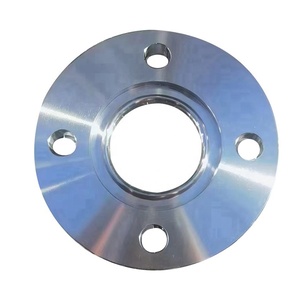Introduction to ANSI Class 900 RTJ Flanges
ANSI Class 900 RTJ (Raised Face Ring Type Joint) flanges are crucial components in high-pressure piping systems, designed to ensure seamless connections and leak-proof seals. These flanges conform to the rigorous standards set by the American National Standards Institute (ANSI), making them a top choice for various industrial applications where high integrity and safety are paramount.
Types of ANSI Class 900 RTJ Flanges
ANSI Class 900 RTJ flanges are available in several types, tailored to specific operational needs:
- Slip-On Flanges: These flanges are designed to slip over the pipe's end, allowing for easy alignment and welding.
- Weld Neck Flanges: Featuring a long neck, these flanges are ideal for high-stress applications due to their ability to withstand stress concentrations.
- Blind Flanges: Used to seal the ends of piping systems, blind flanges are helpful for testing and maintenance purposes.
- Socket Weld Flanges: This type requires the pipe to be inserted into the flange, providing a strong connection for smaller diameters.
Features and Applications of ANSI Class 900 RTJ Flanges
ANSI Class 900 RTJ flanges are engineered with several key features that enhance performance and reliability:
- Robust Pressure Rating: With a class rating of 900, these flanges can handle high pressures, making them suitable for demanding environments like oil and gas, chemical processing, and power generation.
- RTJ Design: The Ring Type Joint design ensures that the flange provides a tight seal under pressure, preventing leaks that could lead to costly downtimes.
- Material Variability: Available in various materials such as carbon steel, stainless steel, and alloy steels, these flanges are adaptable to different corrosive environments.
- Ease of Installation: Their design allows for straightforward installation, which reduces labor costs and downtime.
Common applications of ANSI Class 900 RTJ flanges include:
- Oil and Gas Industry: Used in pipelines and refineries for transporting oil and gas.
- Chemical Processing: Essential in systems that require high-temperature and corrosive resistance.
- Power Plants: Integral in steam lines and other high-pressure systems.
Advantages of ANSI Class 900 RTJ Flanges
The advantages of utilizing ANSI Class 900 RTJ flanges in your projects are extensive:
- Enhanced Safety: The robust construction and RTJ design minimize the risk of leakage, enhancing overall safety in operations.
- Long Lifespan: Made from durable materials, these flanges are built to withstand extreme pressure and harsh environments, ensuring longevity.
- Cost-Effective: Though initially more expensive, the resilience and reliability of ANSI Class 900 RTJ flanges can lead to significant savings in maintenance and replacement costs over time.
- Versatility: Suitable for a wide range of industries and applications, these flanges provide a flexible solution for various piping systems.
Conclusion
In summary, ANSI Class 900 RTJ flanges are a vital component for any high-pressure piping application. With their robust features, versatile types, and significant advantages, they serve as a reliable choice for industries ranging from oil and gas to power generation. Investing in quality ANSI Class 900 RTJ flanges ensures enhanced safety, efficiency, and cost savings in your piping systems.










































































































































































































